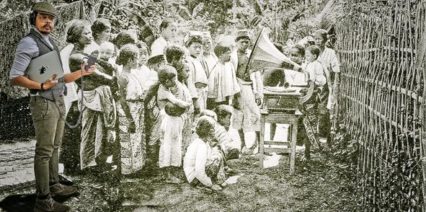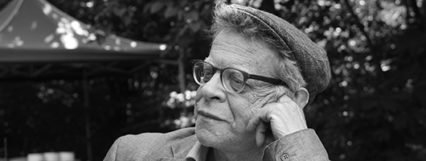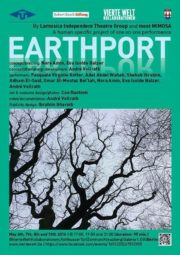A few weeks ago, IRC-Fellow Hanne de Bruin went to Paris to see
Une chambre en Inde, Théâtre de Soleil's latest production directed by Ariane Mnouchkine. The production premiered in November 2016 and was inspired, among other things, by the South Indian (Tamil language) Kattaikkuttu or Terukkuttu theatre. Hanne de Bruin works as Programme Director/Facilitator for the Kattaikkuttu Sangam, an association of professional Kattaikkuttu performers. Together with her husband Kattaikkuttu actor, director and playwright, P. Rajagopal, she helped set up the school Kattaikkuttu Gurukulam in 2002. Being an expert on Kattaikkuttu, de Bruin watched
Une chambre en Inde with totally different eyes then most of its audience - a rare chance to get a special insight. Have a look at her review to learn about her thoughts and questions.

 Who decides what “sound” is? Who would classify it as “music”? In May 2019, former IRC-Fellow meLê yamomo premiered his sound-performance Echoing Europe - Postcolonial Reverberations at Ballhaus Naunynstrasse in Berlin. The performance focuses on recording techniques during colonialism, specifically from 1890-1950 in Southeast Asia and the ways they are exhibited in today's museums as well as their inherent power dynamics. Shortly after the premiere, IRC-Research Associate Stefan Donath led an interview with meLê yamomo about his performance and research.
Who decides what “sound” is? Who would classify it as “music”? In May 2019, former IRC-Fellow meLê yamomo premiered his sound-performance Echoing Europe - Postcolonial Reverberations at Ballhaus Naunynstrasse in Berlin. The performance focuses on recording techniques during colonialism, specifically from 1890-1950 in Southeast Asia and the ways they are exhibited in today's museums as well as their inherent power dynamics. Shortly after the premiere, IRC-Research Associate Stefan Donath led an interview with meLê yamomo about his performance and research. 













